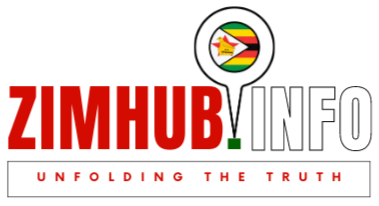BUSINESS REPORTER
OK Zimbabwe is understood to have been severely hit by economic headwinds, forcing the country’s largest retailer to drastically cut employee benefits by more than 50%,it has been learnt.
It is also alleged that the retailer eliminated benefits for lower-level staff members.
Well place sources told Zimhub Info that the situation was dire.
“I’m an executive here at OK and I have been getting 70 litres of diesel per week but I’m now getting 30 litres weekly with all lower-level employees no longer getting transport money,” a manager at OK Zimbabwe outlet in Harare , who preferred anonymity, told this publication this week.
He added: ” Our salaries have been drastically lowered to pitiful amounts due to the substantial reduction in our US dollar salary component. To make matters worse, the company is no longer paying fees for our children in full. We are now forced to look for new places at lower tier schools to meet the new normal at OK Zimbabwe.
We are receiving a lot of resignations on a daily basis. We know the economy is facing some difficulties but the situation at OK has reached an all-time low.”
Speaking on condition of anonymity, a number of managers and low-level staff from various OK Zimbabwe outlets in the capital Harare voiced their concerns about the situation.
They described the situation as dire.
Written questions were sent to OK Zimbabwe group CEO ,Maxen Karombo, via Whatapp on Monday this week.
He did not respond to the enquiry by Zimhub Info.
But, the message was blue-ticked showing that he had seen and read the questions.
Subsequent calls were made by this publication.
In a terse response on Tuesday at 1200hr, Karombo said: “Shamwari ndozvaungandifonera (Why are you bothering me about this?). I am busy.”
However, in a statement accompanying its financial results published in September, OK Zimbabwe board chairman, Herbert Nkala, said the harsh operating environment presented serious challenges to the business, primarily due to exchange rate volatility and high inflation.
“Consumer disposable incomes were adversely impacted by rising prices of goods and services as suppliers sought to preserve value by indexing Zimbabwe dollar prices to foreign currency price pegs.
“The multiplicity of exchange rates posed a huge arbitrage challenge on both the supply and selling sides of retail business. Our key suppliers shortened their trading terms to formal retail resulting in the loss of volumes to the informal sector who were offering competitive pricing in foreign currency as they do not face the regulatory limitations that are placed on formal retailers,” Nkala said.
He claimed that lower consumer spending power and a lack of local currency liquidity were the reasons for the 7.7% decline in volumes for the year over the comparative period.
“The informal sector continued to expand at the expense of the formal retail sector as a result of exchange rate distortions in the market. Profit after tax decreased by 36% to ZWL$5.2 bn billion from ZWL$8.1bn . The profit performance was impacted by the increase in operating costs arising from increased usage of generator fuel due to acute power outages, inflation pressures embedded in forward pricing by market players, as well as exchange rate induced cost increments on labour, cleaning and security costs. The group has taken measures to reduce and contain costs to improve its profitability going forward,” Nkala said.
Nkala anticipates that the business will continue to face significant challenges in the form of exchange rate volatility, high inflation, and interest rates. Additionally, the formal retail volume performance will continue to be negatively impacted by the local currency liquidity challenges.
Additionally, he anticipates that overheads will keep rising due to the growth in service industry expenses, utilities, and wage inflation.

